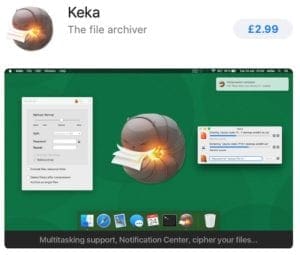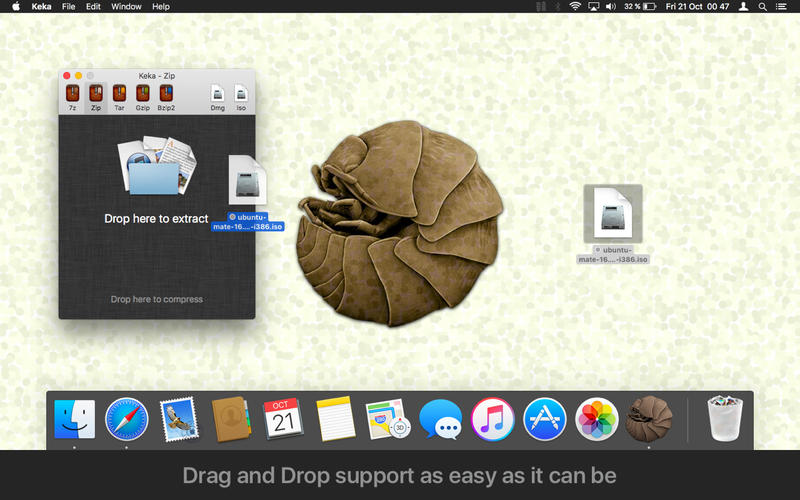

- DOWNLOAD KEKA FOR MAC HOW TO
- DOWNLOAD KEKA FOR MAC ARCHIVE
- DOWNLOAD KEKA FOR MAC PRO
- DOWNLOAD KEKA FOR MAC PASSWORD
- DOWNLOAD KEKA FOR MAC ISO
Also, every window seems to be named Keka, which makes it a bit confusing.
DOWNLOAD KEKA FOR MAC ARCHIVE
At first I thought it wasn't honoring split preferences, but it seems to be working once I figured out that main window (which is actually archive preference). I wish that the archive preference (compression method per format, where to split files, password, etc) either popped up when you went to archive files via the Finder or was within the Preferences options. While the interface is a bit confusing at first, but this app is doing what it says it should. Won't split large archives when compressing
DOWNLOAD KEKA FOR MAC PRO

DOWNLOAD KEKA FOR MAC ISO
Properly showing DMG & ISO task icon in 12.0+.Refined show in Finder action in task view.Suggest UTF-8 encoding in the pop-up if available (Thanks to #1052.Preventing issue with very slow quarantine application (Thanks a lot to & #1040.Added additional information if task fails #1037.Fixed extraction of ZIP files containing filenames with emoji characters (Thanks to & #577 #1021.
DOWNLOAD KEKA FOR MAC PASSWORD


DOWNLOAD KEKA FOR MAC HOW TO
Those with specific requirements in creating archives can dial in just what they want those who receive a file or archive and are trying to extract it into a usable format need to know almost nothing to proceed except how to drag and drop or double-click. Keka also manages the neat trick of having a deeply technical purpose, and yet being usable without special training. First released in 2009, the app continues to mature, and the developer adds formats and additional features on a constant drumbeat. Keka is a perfect partner for any Mac owner’s needs for file archiving and extraction. Email offers endless ways to ruin file attachments in transmission, and compressed file archives typically bypass those problems. We live in modern times, but file archives for organization, proper transmission without loss, compression, and encryption still abound for those who use desktop computers and server systems. When bulletin board systems and the nascent internet let us upload files, the low speeds and scarce storage meant every bit-not just byte-counted. Long ago, we compressed, sliced, and diced large document files and applications, stuck them on series of 1.44MB floppies, and passed them around.


 0 kommentar(er)
0 kommentar(er)
